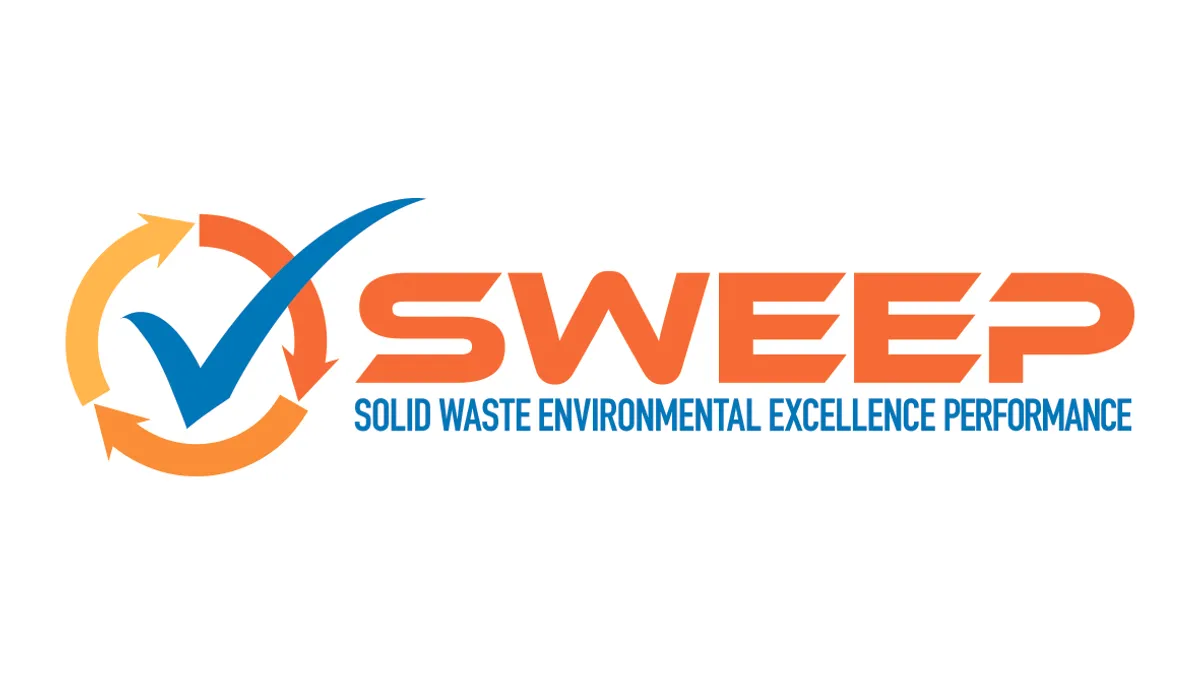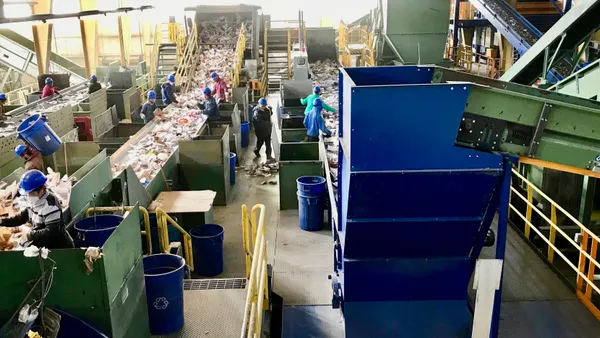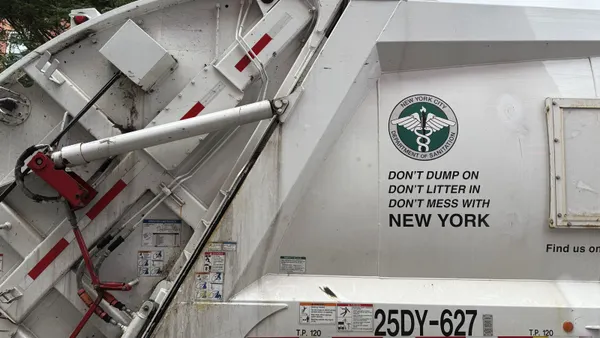Dive Brief:
- The Solid Waste Management Environmental Excellent Protocol (SWEEP) announced the selection of two new co-chairs to lead its work on developing a universal waste standard, as well as a newly redesigned website.
- Rob Watson, chief science officer for EcoHub and founder of the LEED green building certification program, and Susan Robinson, senior public affairs director for Waste Management, will co-chair SWEEP's national steering committee.
- SWEEP is currently in the process of establishing committees to help develop standards and key performance indicators to rate solid waste programs across multiple categories. Details on this system will be uploaded to SWEEP's website as they are finalized, with the opportunity for public input.
Dive Insight:
Following the creation of LEED, Watson had been thinking about a similar system for the waste industry and formally launched SWEEP last year. During an interview with Waste Dive last fall he explained how programs would be assessed across four performance categories — "Sustainable Materials Management Policies," "Waste Generation and Prevention," Solid Waste Collection," and "Post-Collection Processing and Disposal" — using a variety of performance indicators. At the time, Watson outlined why a modern standardized assessment framework for both municipal and industrial programs is needed to improve what is often a disjointed national conversation around waste policies.
In the months since, SWEEP's core team has been developing more details about these standards and posting industry analysis on their site. Recent topics have included average regional tip fees in 2016, the unheralded landmark of "peak packaging" in 2000, safety, and best practices for contracts, among others. This range shows the complexity of making the current waste system more efficient while also driving reduction and diversion. In a recent interview for the next episode of Waste Dive's Talkin' Trash podcast, Watson described how he saw SWEEP fitting into the overall push toward reducing the amount of waste currently going to landfills or waste-to-energy facilities.
"You're going to need pay-as-you-throw, you're going to need extended producer responsibility in certain cases. Each of these tools has a focus and a niche where it is most effective," said Watson. "And that's where good, comprehensive sustainable materials management policy comes in, dovetailed with regulations and voluntary standards such as SWEEP, that can help reduce society's overall material footprint."
At a time when many cities are setting "zero waste" goals with different definitions of the term and there is little national direction on building recycling infrastructure this type of universal standard could be appealing for any local government or company trying to figure out how they fit into it all.










